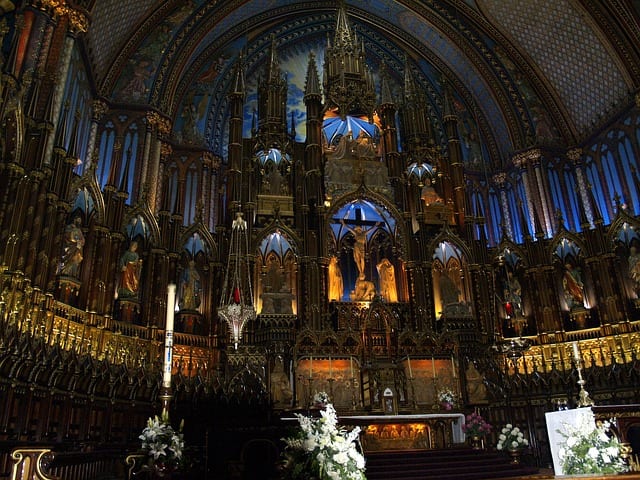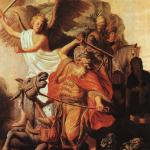
(1) . . . theological anti-Catholicism or anti-‘Romanism’ remains an important part of Irish Protestant identity. (Irish Society: Sociological Perspectives, edited by Patrick Clancy; this section [“Nation Unequally: Sectarianism in Ireland”] by R McVeigh, 1995, 637)
(2) Brewer (1998) also argues that theological anti-Catholicism does not necessarily lead to a strong unionist position and, in fact, that some evangelicals are . . . (“The Moral Minority: Evangelical Protestants in Northern Ireland and Their Political Behaviour,” Claire Mitchell and James Tilley, Political Studies, Volume 52, Number 3, October 2004 , pp. 585-602(18) )
(3) . . . of an increasing number of Irish and German immigrants that seemed to confirm the fears of Morse and Beecher, theological anti-Catholicism and political . . . (“‘Religion without Restriction’: Anti-Catholicism, All Mexico, and the Treaty of Guadalupe Hidalgo,” John C. Pinheiro, Journal of the Early Republic, Vol. 23, No. 1 (Spring, 2003), pp. 69-96; link now defunct)
(4) Scholars have drawn a distinction between theological and cultural anti-Catholicism. Theological anti-Catholicism is as old as the Reformation; it emphasizes the theological distinctives that separate Catholicism and Protestantism, In America, it can be traced to the influence of the Puritans on the development of America’s Protestant identity. . . .
Cultural anti-Catholicism locates its roots in the belief that the Roman Catholic Church’s institutional presence and hierarchy threatened American democracy and the autonomy of the individual. . . .
For southern Protestants, . . . cultural and religious anti-Catholicism persisted much longer. (The South’s Tolerable Alien: Roman Catholics in Alabama and Georgia, 1945-1970, Andrew S. Moore, LSU Press, 2007, 12)
(5) Brewer (1998) and Brewer and Higgins’ (1999) work on religious anti-Catholicism amongst Protestants might also be characterized as ethnic support. Brewer asserts that anti-Catholicism must be understood as sociological process. It provides the resources to mark out boundaries, rationalize and justify Protestants’ political position and to provide unity in times of threat. Brewer’s work by no means ignores theology as he outlines how each variant of anti-Catholicism intertwines specific theological positions with political ideas and (lack of) relationships with Catholics. He teases out the how the substance of religious anti-Catholicism relates to social and political power. (“The Religious Content of Ethnic Identities,” Claire Mitchell, Sociology, Vol. 40, No. 6, 1135-1152 (2006) )
(6) The claim that anti-Catholicism is Scriptural is rooted in sixteenth-century theological debates . . . the belief that anti-Catholicism is Scriptural is part of the self-defining identity of certain Protestants . . . divisions are immutably upheld by theological doctrine. . . . anti-Catholicism in some settings is, indeed, much more than doctrinal differences, but a sociological account is needed to distinguish these situations from settings where the differences remain theological. . . .
Anti-Catholicism can be defined as the determination of actions, attitudes, and practices by negative beliefs about individual Catholics, the Catholic Church as an institution, or Catholic doctrine. (“Understanding Anti-Catholicism in Northern Ireland,” John D. Brewer and Gareth I. Higgins, Sociology, 33(2), (1999), 235-255)
(7) . . . a ‘theological’ anti-Catholicism grounded in historic Protestantism . . . (Classes and Cultures: England 1918-1951, Ross McKibbin, Oxford University Press, 1998, 293)
(8) Brewer (1998) outlines three active modes of anti-Catholicism that he sees as prevalent in contemporary Northern Ireland: covenantal, Pharisaic, and secular. The first two are based in theological teachings . . . the covenantal mode of anti-Catholicism is based in prophetic Old Testament ideas of God, land and a ‘chosen people’ . . . Conflict is interpreted as a battle between good and evil, truth and error . . .
It is important, however, not to over-simplify the social and political consequences of theological anti-Catholicism. It is inaccurate to say that people’s theological problems with Catholicism and a desire to convert inevitably lead to bad social relationships. (Religion, Identity, and Politics in Northern Ireland, Claire Mitchell, Ashgate Publishing, 2005, 120-121)
(9) Much anti-Catholicism involved theological argument that could quickly become mental mud-wrestling between defenders of particular faiths. (American Mobbing, 1828-1861: Toward Civil War, David Grimsted, Oxford University Press, 1998, 222)
(10) Puritan anti-Catholicism, despite some sympathies with later kinds of bias, was deeply different from them. Far from being anti-theological, like Jefferson, it was super-theological. It was central to the whole structure of Puritanical thought. (Head and Heart: American Christianities, Garry Wills, Penguin, 2007, 51)
(11) Already in much of Latin America, Protestant-Catholic conflicts often involve traditional religious anti-Catholicism of a sort that went out of fashion among Anglo-Americans half a century since. (The New Anti-Catholicism: The Last Acceptable Prejudice, Philip Jenkins, Oxford University Press, 2003, 213)
(12) . . . in the mid-nineteenth century we can begin to disentangle two strands of anti-Catholicism in the United States. The first is an intensely religious anti-Catholicism derived from the Reformation era-polemics that shaped American cultural life . . . Here Catholics believe in self-evidently ludicrous doctrines such as purgatory and transubstantiation. (John T. McGreevy, in American Catholics, American Culture: Tradition and Resistance, edited by Margaret O’Brien Steinfels, Rowman & Littlefield, 2004, 156)
(13) The evidence strongly suggests that there were two types of anti-Catholicism in 1960. The lower-class nonurban kind is the religious anti-Catholicism of American history, tied to a lack of education, strong commitment to one’s own Protestantism . . . (Revolution and Counterrevolution: Change and Persistence in Social Structures, Seymour Martin Lipset, Transaction Publishers, 1988, 356)
***
(originally 7-8-08)
Photo credit: [Max Pixel / public domain / Creative Commons Zero – CC0 license]
***













